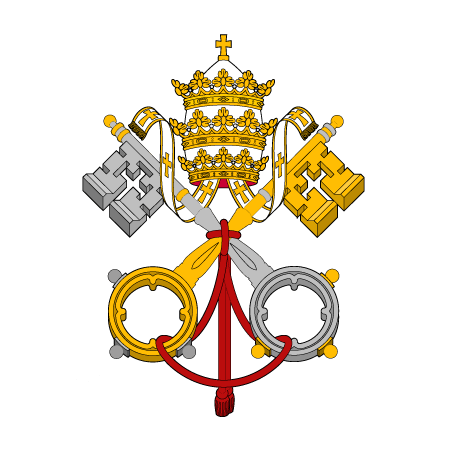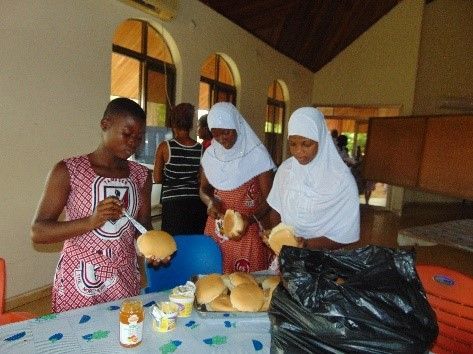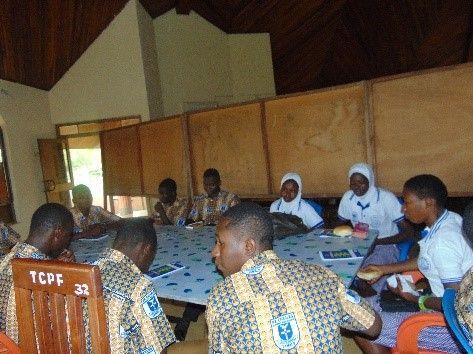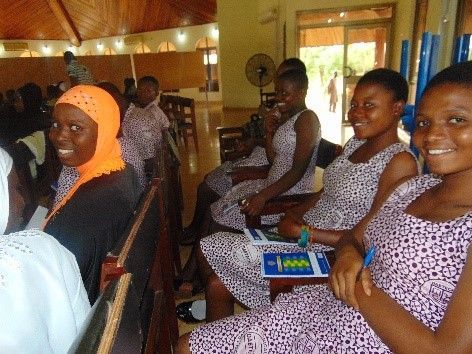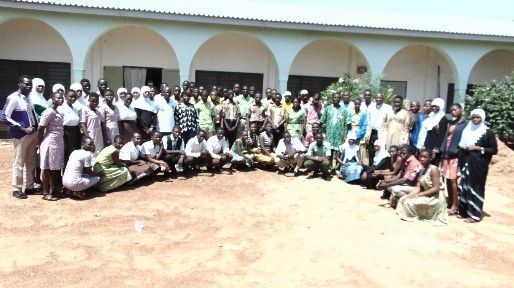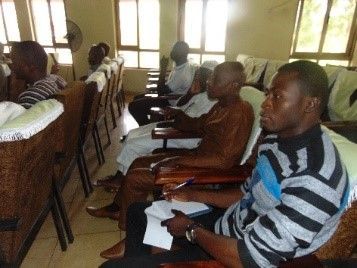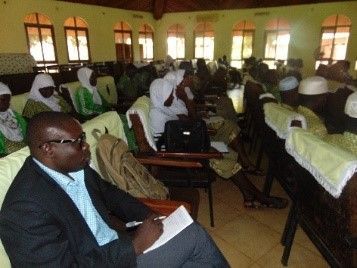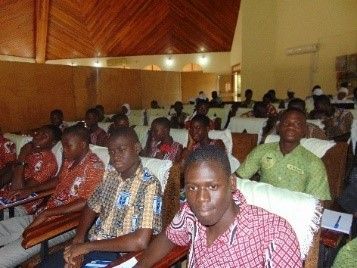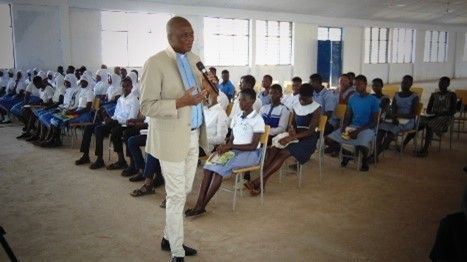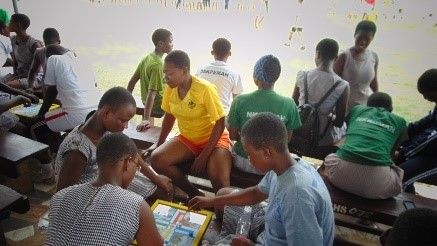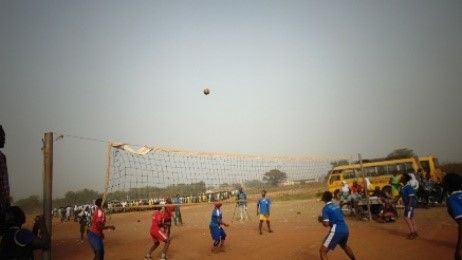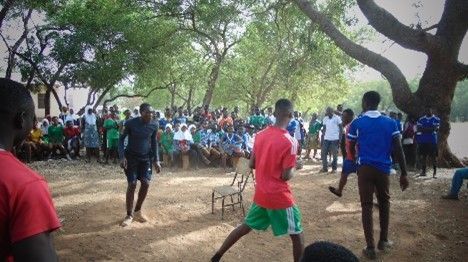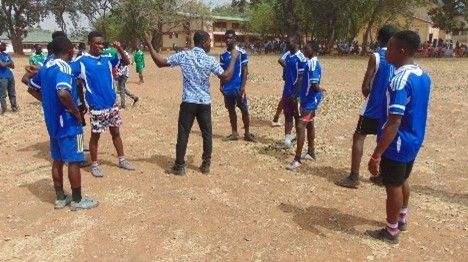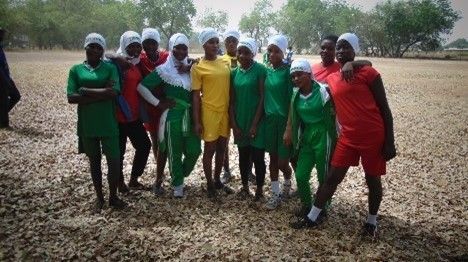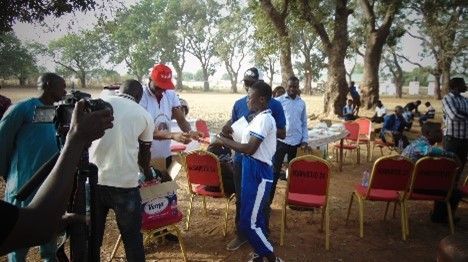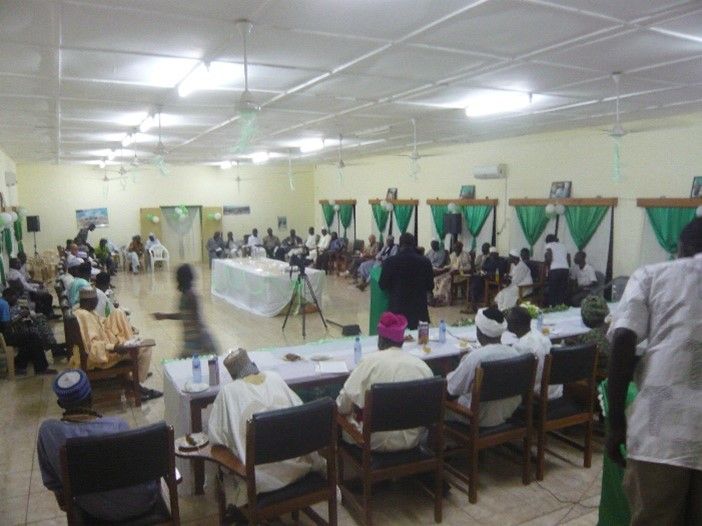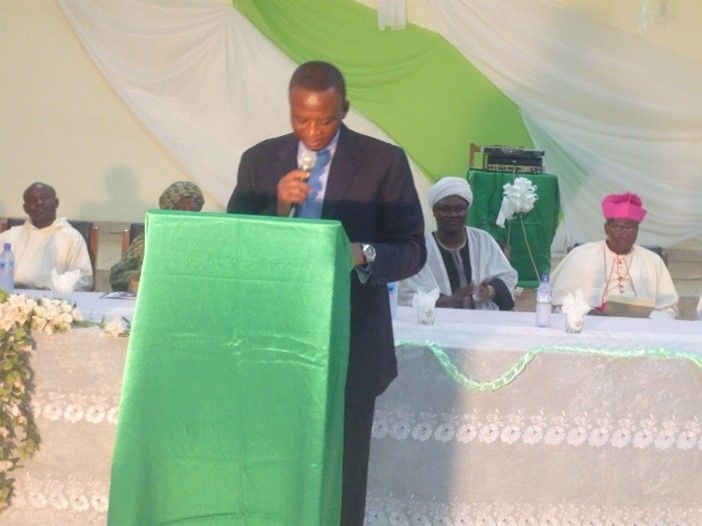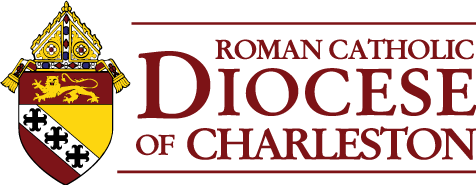Greetings From Ghana!
Christians and Muslims side by side in Ghana
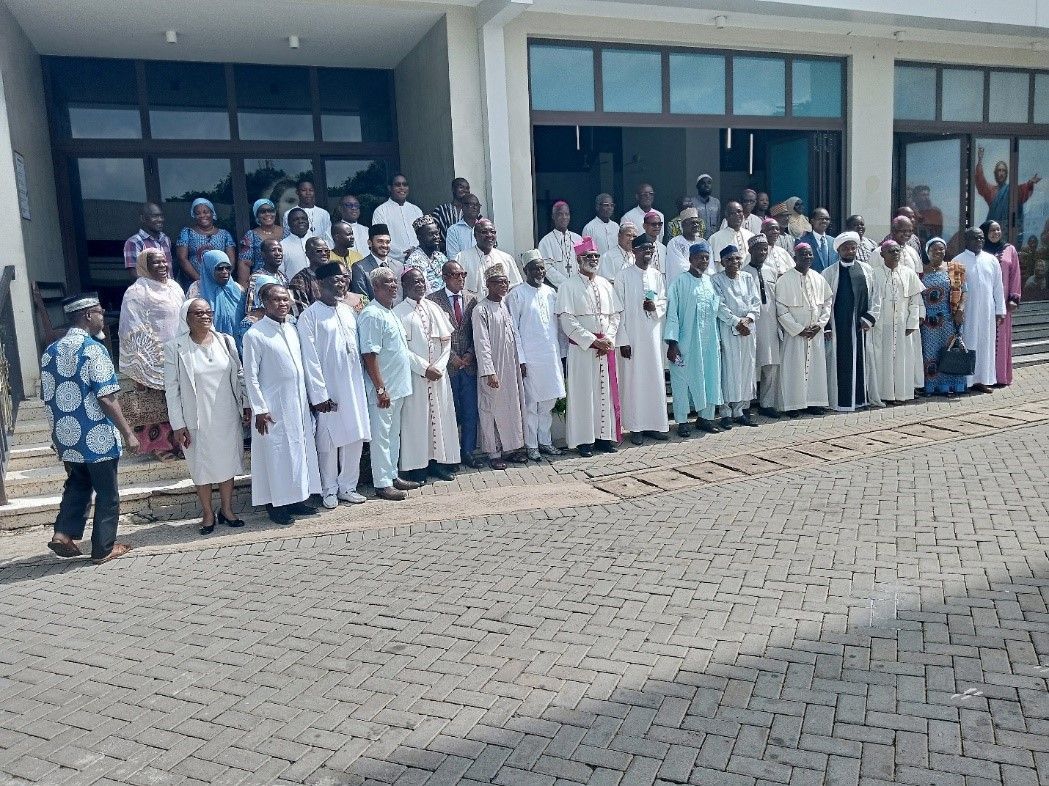
Catholic and Muslim Leaders in Ghana Meet
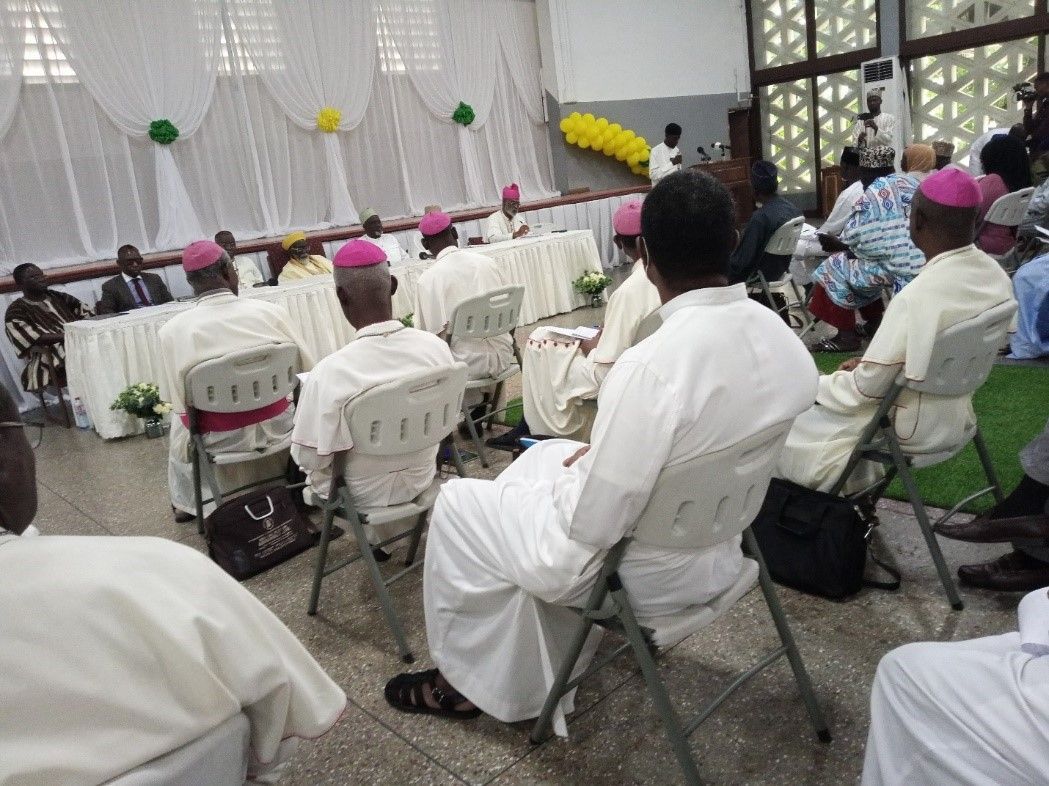
Meeting in Progress between the Ghana Catholic Bishops' Conference and the National Chief Imam and the Muslim Community in Ghana-Christ the King Parish Hall Accra
The two pictures above were taken at the occasion of the maiden meeting of the Ghana Catholic Bishops’ Conference (GCBC) and the National Chief Imam and the Muslim Community in Ghana. This is an initiative of the GCBC furtherance to strengthening the cordial and mutual respect and tolerance of one another in the Ghanaian society in matters of faith. It is hoped that this core group will initiate many common concerns for discussing and resolve as well issues in our Ghanaian society bordering the two sides devoid of media and political colorations.
To get a further dimension of Islam and Christianity in Ghana, read below an interview conducted with one of the Prelates of the Catholic Church in Ghana.
Interview with Archbishop (AB) Gabriel Charles Palmer Buckles
30th October, 2019.
Question: Your Grace, the National Chief Imam (NCI) His Eminence Dr. Sheikh Nuhu Sharabutu, recently celebrated his 100th Birthday and you paid him a visit? You a Church Prelate, visiting a Muslim Cleric?
Archbishop: Let me immediately put two things in perspectives. When I came to Accra as Metropolitan Archbishop, I paid him a courtesy call; this is sometime in 2005/6. I paid him a courtesy call because, I have always had a good relationship with my cousins who are Muslims, and who, at the time, encouraged this type of relationship. You will remember I have always had a good relationship with the Amir, the Ahmaddiyyan Missionary (in Ghana) the late Malvi Wahabu Adam, with whom I worked on the National Reconciliation Commission for two years. So let me say that, as far as I am concerned, I have always sought to enter into interreligious harmony, dialogue and collaboration with other religious bodies especially the Muslim Community.
So, I had paid him, the National Chief Imam (NCI) a visit, somewhere 2005/6. Now between 2005 as long as I was in Accra I have always paid him (NCI) a visit. We had met at various activities, National receptions; we had been on different interreligious programs and anywhere and everywhere we met, we felt a certain heart to heart relationship, so I used to call him my father.
The second point I want to add is somewhere in December, 2016, that was during the National Presidential Election. We had met on a few platforms to speak to the people of God about peace. But something striking had happened (about the 20th December, 2016).
One day I entered my office in the Archdiocese of Accra, and then I met four (4) distinctive gentlemen coming to see me. So, I welcomed them into my office and what they said was that they had been sent by the NCI to me, and I said they were also welcome and asked, “how is my father?”; They said, “your father is worried about you because he had not seen you at any reception at any activity nor had he seen you on the TV (the news taking). So, he wanted to know if you were unwell.” “Now can you imagine? This man had not seen me, and he requested to find out whether I was unwell?”
“I will tell you; this took me by the greatest surprise. So, I told the four gentlemen,’ please go and tell my father, I am really well, and that if things permitted I would like to pay him a visit within the next few days.’
“So I think I went to visit him, somewhere 22nd December and it went viral on the social media – me and the NCI praying together in his house. So, this is just to say I have always had a very loving father-son cordial relationship with him.”
“What surprised me further again was the fact that on his 100th birthday, it happened to fall on Easter Sunday, the NCI appeared at Christ the King Catholic Church, where he came for blessings, which is another big surprise to many people. So (my son), here is the man with whom we have always cultivated a very beautiful relationship, and who in his own person and right, always desired such relationship with Christians, with me in particular as a Catholic Archbishop, and I don’t want to say his relationship with me has been exclusive, but has always been welcomed. And I think for his 100th birthday, which is not easy for many people to attain, there was nothing better than to visit him and wish him a happy birthday.
“Maybe, let me add that in Accra, nationally when the Muslims decided to honor him for his 100th birthday, they called me in Cape Coast to be the chairperson for that activity. It was the Vice President of Ghana, Dr. Mahamud Bawumia, who spearheaded the organization of that reception for the National Chief Imam and who, with the concern of the National Chief Imam, invited me to be the chairperson for that activity. So I have always had a very good rapport/ relationship with my brothers, the Muslims.”
On the controversies people in the Ghanaian society had about the visit of the National Chief Imam to the Church on his 100th birthday, the Archbishop responded thus:
“I listened to the unnecessary comments and I was also happy at the same time with the BBC very positive reportage as well as other international media. I think we do well to welcome anybody of goodwill, where there is love, peace and understanding. And if this is to help emphasize the peace in our beloved country, Ghana, then you ask why don’t we work for the things that unite us than the things that divide us?”.
Question: Your Grace, how do you find the relationship between Muslims and Christians in the sub-region of the Regional Episcopal Conference of West Africa (RECOWA)?
Archbishop: “In fact, last May, 13th – 20th, 2019. The Bishops of the West African countries (about 15 countries) met in Ouagadougou, Burkina Faso for our plenary Assembly. Just before we arrived on the 12th May 2019, there was an attack in a Parish, Dableau, and a day before by the so-called Muslim extreme jihadists where a priest and four others were shot dead.
“Again, on the 14th May 2019, there was another attack at a grotto in Bobo Djoulaso by so-called Islamists, these extremists who in the name of peaceful religion like Islam, are doing much harm even at times to Islam itself. They had attacked again and killed another priest. So we invited our brother Bishops to tell us what their experience with the situation at hand was like in their countries.
“All the countries, Nigeria, Burkina Faso, Niger, Guinea, Mali, and to some extent, Cote D’Ivoire where they have some of these mishaps, the bishops said, ‘it is not Islam we are dealing with. It is a group of bandit terrorists, who in the name of Islam are visiting mayhem on all of us.’ Therefore, they encouraged all of us to continue with our interreligious harmonious dialogue with Islam as a religion with the Church, and to come to a decision where we all can find a solution to these extremists.
“We had to also admit that there is one or two cases of Christian extremist terrorists like the Lord Resistance (Liberation) Army of Uganda and other places. These groups are people who have political intention who want to take over power and are only using religion. So Christians and Muslims should come together and fight these extremists who are using religion for their own selfish agenda.
“Extremist or a terrorist in West Africa has a geo-political dimension”. “This was acknowledged by Most Rev. Matthew Hassan Kukah, Bishop of Sokoto diocese in Nigeria at the RECOWA pleanary in Ouagedougou (13th – 20th May 2019). The geo-political dimension makes the issue much more complex because there are those who want to definitely take power in Africa in the name of a particular religion, and are using young people who are unemployed, and disillusioned with the inequality that democracy is visiting on us. Young people who blame Christianity for having brought about a lot of disunity among us. There is this dissatisfaction growing all over Africa, in order to do their own geo-political issues. So we are dealing with issues of socio-economic and political rather than religious challenge.
“However, there is a difference in Ghana compared to most of our neighboring West African countries mentioned above. What makes the difference? Interestingly two dimensions:
(1) The history of how Islam came into Ghana and how it was welcomed. We had taken it for granted. Islam came into Ghana through the Merchants from the North, who brought in their Mercantile into the country and that was the al-Tijanian type of Islam at home with the Ghanaian cultures and family with the heritage of the people. So in Ghana we have an Islam which was never politically used for expansion, like Northern Nigerian had a very big Islamic Empire, the Fulani Hausa Empire, and a political tool.
(2) Most Ghanaians have blood relationship in the family where some are Christians and others are Muslims – for instance cousins and uncles/aunts etc. are Muslims while their counterparts are Christians. When we deal with each other in terms of family, blood relationship, we should be kind and tolerate one another. When your cousins (Muslims) have their marriage celebration, they should invite their cousins (Christians) and vice versa. This enhances mutual and cordial relationship and will lead to a stronger bond. To that you can’t attack one another in the name of religion because they are your relatives.”
Thank you, Your Grace.
A REGIONAL REPORT OF INTERRELIGIOUS DIALOGUE ENCOUNTER IN THE NORTHERN REGION OF GHANA, TAMALE AT THE MARYAM CENTRE FOR INTER-RELIGIOUS DIALOGUE.
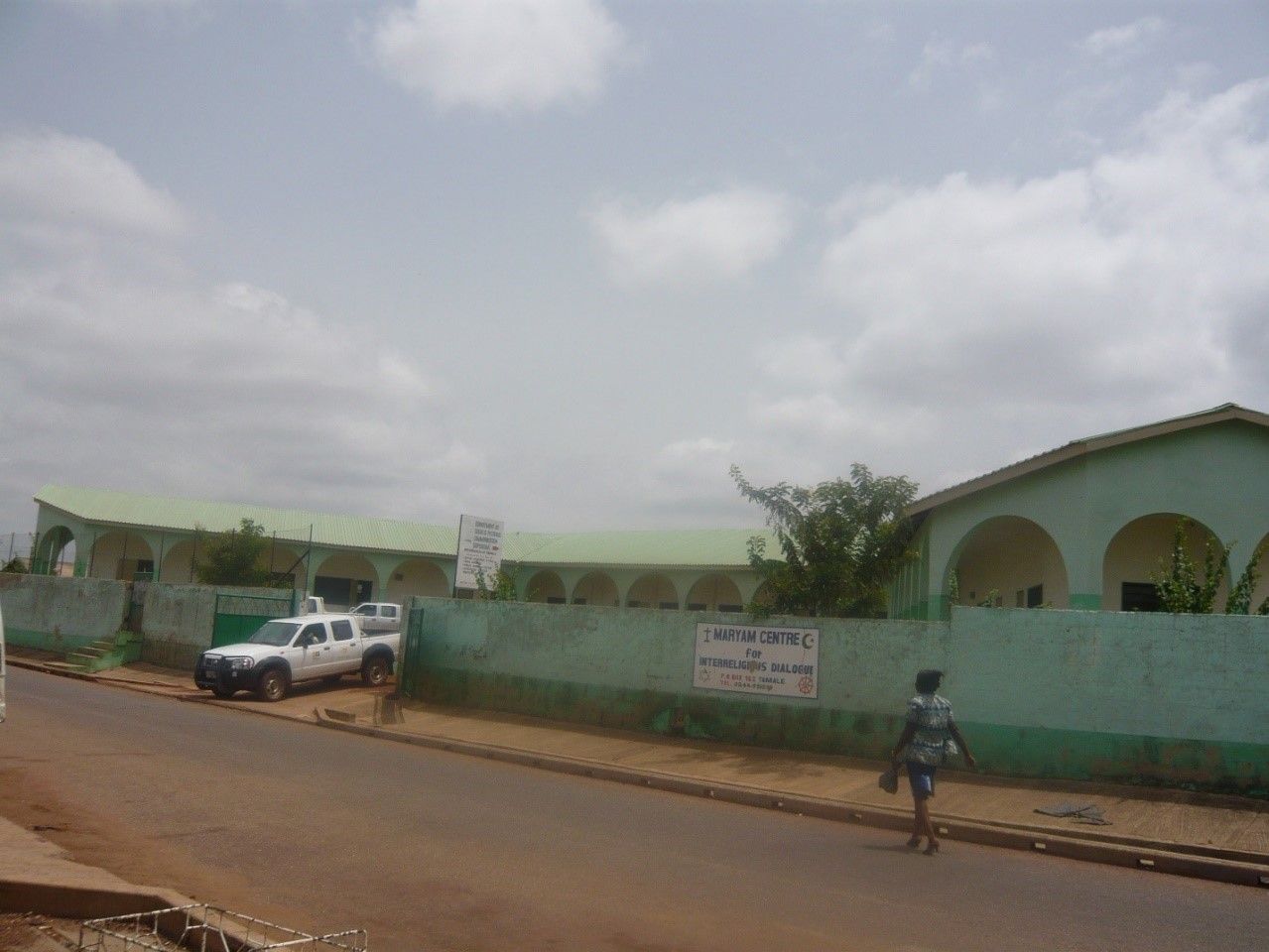
Picture of Maryam Centre for Inter-religious Dialogue
1) Inauguration:
The Maryam Centre for Inter-religious Dialogue was inaugurated on 30th June 2007, by the then Archbishop of Tamale, Most Rev. Gregory Ebo Kpiebaya. The “Dakpema,” i.e., the landlord and Chief of Tamale, cut the ribbon to officially open the Centre. Present were Muslims, Local Council of Churches and the Christian Council of Ghana.
2) The Establishment:
The establishment of the Maryam Centre for Inter-religious Dialogue facility in Tamale is to facilitate education of all religious groups on the need for religious tolerance, respect and peaceful co-existence. This Centre has an attractive, centrally located building with conference facilities and a library. This facility has played and continues to play a useful role in developing healthy inter-religious relationships.
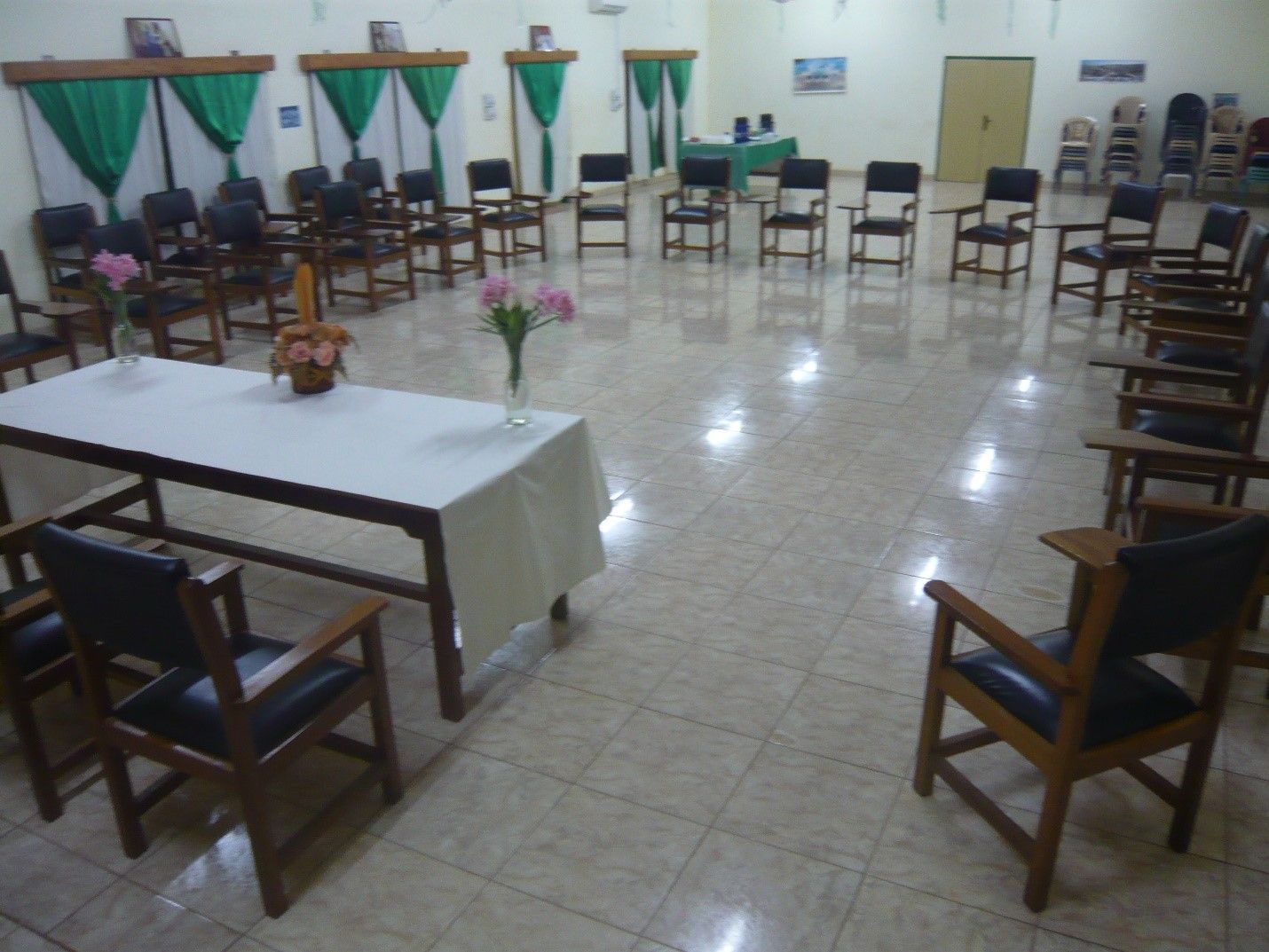
(Picture of conference hall)
3) Programs at the Centre:
i. Training workshops:
Through workshops the Centre embarks on vigorous education through inter-religious Dialogue that create the sense of “weism” among the people of the Northern Region of Ghana in particular, and Ghana at large. Various stakeholders are brought together to fine-tune the minds for successive peace building that go a long way to change individual orientation on matters relating to different religious beliefs and practices.
ii. Socio-religious Celebrations:
The Centre organizes and hosts the celebrations of major feasts in the three major religions in the region; i.e.; African Traditional Religion (ATR), Christianity and Islam. Major feasts include Damba (a traditional feast), Christmas, and Id-al Fitr - the end of Muslim Ramadan). At such occasions the different religious communities share goodwill messages among others.
iii. Public Conferences:
Various topics concerning all the three religious communities are presented and discussed. They are open to the general public. The topics include areas such as: ecology, human rights, African Traditional values as factor of unity, mixed marriage, religion as factor of peace or conflict, conflict management and transformation from our faiths’ teachings etc.
iv. Researchers Destination:
Throughout each year various researchers visit the Centre to conduct research interviews as well as visit our library and other sources for various topics. Many university students home and abroad take the advantage.
v. Radio Programs:
Many advocacy programs are carried out at the Centre and later aired on FM radio stations for public education.
vi. Centre: Open to Other Groups/Individuals:
Besides the activities planned by the Centre it is also open to groups or individuals on request for a token fee. Many religious groups of the different faith communities patronize.
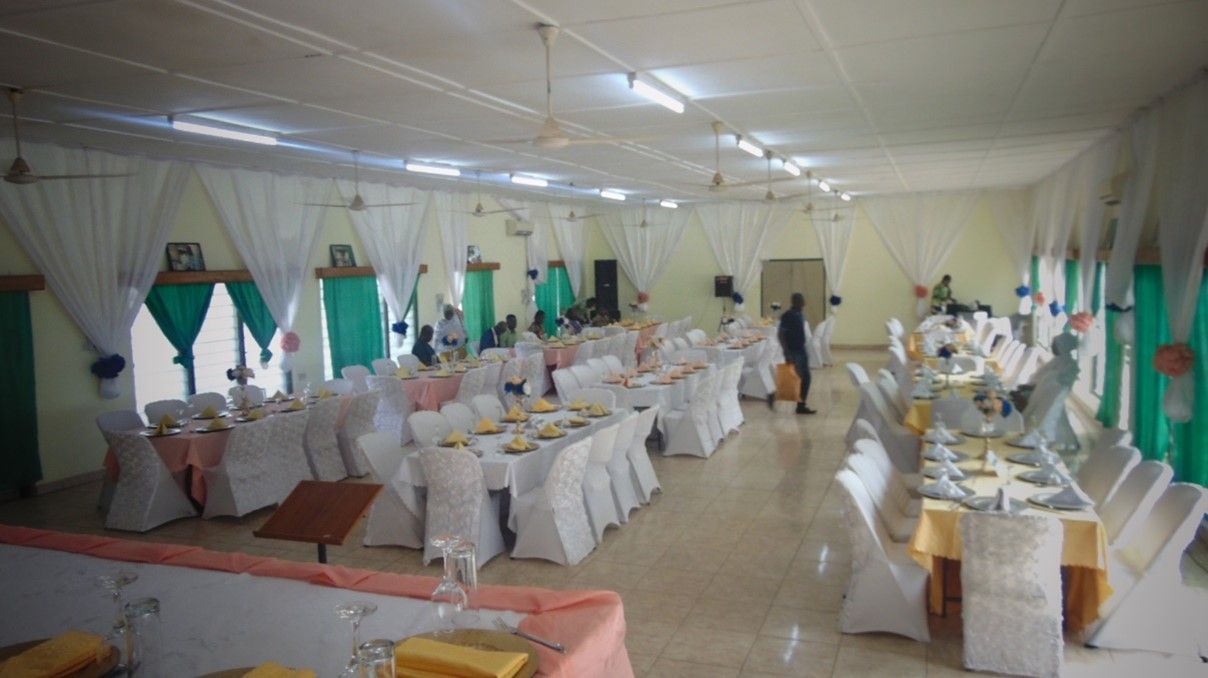
4) The Inter-religious Dialogue Committee (IRDC), Tamale:
The IRDC of Tamale is made of people of various religious denominations: Christians – Catholics, Anglicans, Presbyterians, Methodists; Muslims of different trends: Tiddjanis of the Central Mosque, Tamale, the Ahl al-Sunna of Anbariya Mosque, Tamale (both of the Sunni Muslims), some rare Shi’ites and Ahmadis of the Ahmaddiya Muslim Mission, Tamale.
This Committee is a steering one that meets regularly to plan and evaluate activities of the inter-religious dialogue process in the region. It has a Chairman and there is a trained full-time Coordinator who is also the Director of the Maryam Centre for Inter-religious Dialogue.
5) Challenges
Ghana is currently under the threat of Terrorists’ attack. The intelligence and security services are cautioning Ghanaians to beware of this threat. All our neighboring countries have recorded some violent Terrorists’ attack on innocent people and Burkina Faso as a neighbor is worst affected.
There is the need to intensify as well as design new programs coverage areas and targets for interfaith encounters. Such programs and activities must include outreach to all the eight administrative districts of the Northern Region of Ghana. Among target groups, must include preachers in the Mosques and Churches and the youth and women groups and organizations. However, we are constrained with funding and a means of transport to carry out our outreach programs. The only available means of transport is a thirteen-years-old Nissan Pick-up truck which can no longer move round these districts. We are looking forward to better opportunities of engagement and collaboration to curbing or reducing the threat of Terrorists’ activities in our Motherland Ghana.
